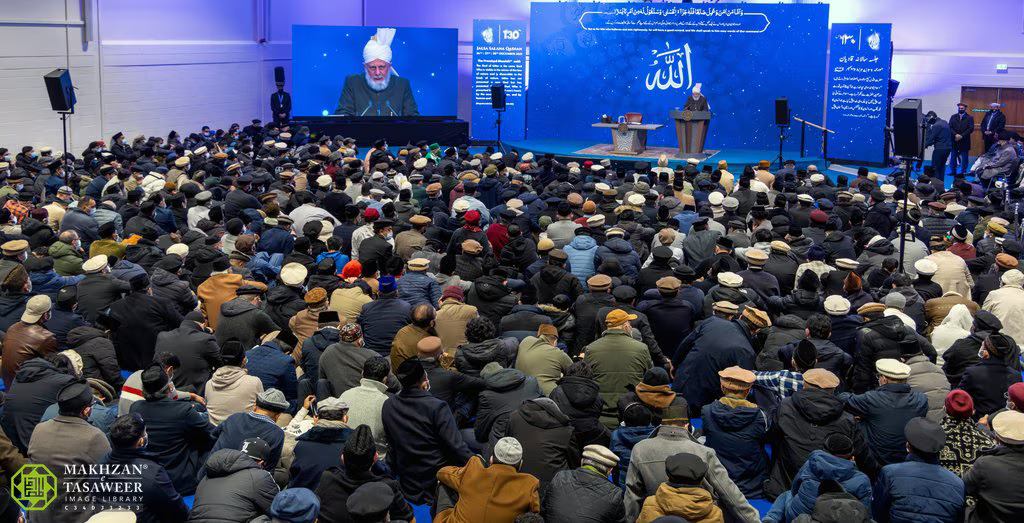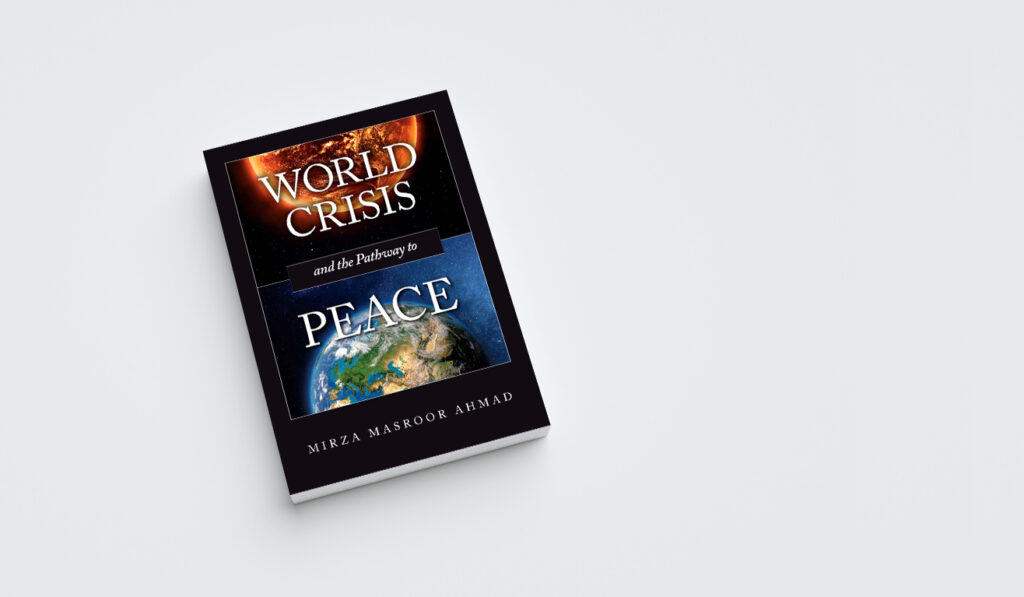ARTICLES
Across history, there have been many attempts to end slavery. Yet, all too often, emancipation came at the cost of human lives or remained confined to paper, lacking a holistic approach and thus falling short of securing true human dignity.
The Ahmadiyya Khalifa addresses the Annual Convention in Qadian, outlining the need to practically fulfil the conditions of the pledge of allegiance to the Promised Messiah(as).
Does the Quran truly foretell universal truths? Or does it merely echo scientific discoveries? Recent advances in cosmology show that the Quran describes many phenomena centuries ahead of its time, guiding the odyssey of human knowledge.
From keys to phones to wealth and fame, human beings always tend to search for things in the wrong places—peace being no exception. Often, one simply forgets that true contentment can come only from the One who created it.
In a world where modern efforts often fail to resolve conflicts, the Treaty of Hudaybiya, concluded fourteen centuries ago, offers timeless lessons in diplomacy, patience, and principled leadership.
Success comes from steadiness—through daily effort, heartfelt prayer, and leaving the rest to Allah, trusting His wisdom in every step.
While a declined handshake is often viewed as a breach of etiquette, differing religious and cultural boundaries highlight how complex the interaction between faith, personal choices, and social norms can be.
History remembers those who recognise truth before the world does. This is the story of two hearts—separated in time—whose acceptance of truth became eternal symbols of faith and certainty.
Real progress comes through balance—limiting screen-time, focusing on learning, and safeguarding one’s moral and intellectual growth.
In a world teetering on the edge of conflict, readers from different walks of life share their reflections on the Ahmadiyya Khalifa’s book ‘World Crisis and the Pathway to Peace’, a powerful call for justice, compassion, and lasting harmony.
Across history, there have been many attempts to end slavery. Yet, all too often, emancipation came at the cost of human lives or remained confined to paper, lacking a holistic approach and thus falling short of securing true human dignity.
The Ahmadiyya Khalifa addresses the Annual Convention in Qadian, outlining the need to practically fulfil the conditions of the pledge of allegiance to the Promised Messiah(as).
Does the Quran truly foretell universal truths? Or does it merely echo scientific discoveries? Recent advances in cosmology show that the Quran describes many phenomena centuries ahead of its time, guiding the odyssey of human knowledge.
From keys to phones to wealth and fame, human beings always tend to search for things in the wrong places—peace being no exception. Often, one simply forgets that true contentment can come only from the One who created it.
In a world where modern efforts often fail to resolve conflicts, the Treaty of Hudaybiya, concluded fourteen centuries ago, offers timeless lessons in diplomacy, patience, and principled leadership.
Success comes from steadiness—through daily effort, heartfelt prayer, and leaving the rest to Allah, trusting His wisdom in every step.
While a declined handshake is often viewed as a breach of etiquette, differing religious and cultural boundaries highlight how complex the interaction between faith, personal choices, and social norms can be.
History remembers those who recognise truth before the world does. This is the story of two hearts—separated in time—whose acceptance of truth became eternal symbols of faith and certainty.
Real progress comes through balance—limiting screen-time, focusing on learning, and safeguarding one’s moral and intellectual growth.
In a world teetering on the edge of conflict, readers from different walks of life share their reflections on the Ahmadiyya Khalifa’s book ‘World Crisis and the Pathway to Peace’, a powerful call for justice, compassion, and lasting harmony.













